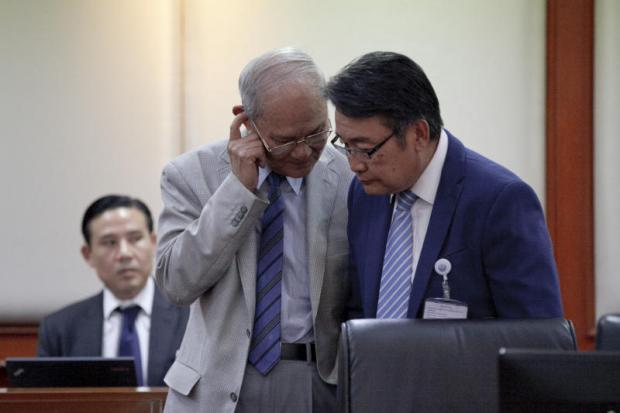
Just before the March 24 election, several members of the Election Commission (EC) took what they called a "study trip" to Europe and the US.
The commissioners faced a storm of criticism for the destinations they chose to visit and the trip taking place so close to the election date. Many critics lambasted them for spending 12 million baht of taxpayers' money on what appeared more like a leisure trip.
Had they taken a trip closer to home, public opinion would probably have been much more positive, particularly if the destination was India or Indonesia.
The two Asian neighbours are giant countries with massive electorates. Yet, elections in both have gone without a hitch.
Let's take a quick look at the one held three days ago in Indonesia. The event has been billed as the world's most complex one-day election.
This is a nation made up of 17,000 islands with 809,500 polling stations, presenting the country's election commission with a logistical nightmare.
A total of 192.8 million Indonesians were registered to vote. This year they cast ballots not only for presidential hopefuls but also for parliamentary and local-body candidates, making the elections even more complicated than normal.
And the voters had only six hours to vote.
Quick counts gave initial results within a day, and the official results are expected to be completed by or before May 22.
Meanwhile, nearly a month since Thai voters cast their ballots, Thailand is stilled mired in controversies, many of which emerged even before counting at polling stations was completed.
There were reports of incompatible numbers of votes cast to voters actually casting ballots, of more ballots than the number of registered voters, of dead peoples' names in voter registration lists, and so on.
But the most astounding aspect has to be the EC's admission that it has not yet decided on what formula to use to calculate the number of party-list MPs for each party.
There followed numerous proposed formulations from all walks of life -- political candidates, non-elected members of the National Legislative Assembly, academics, mathematical experts, media personalities, down to amateur political observers, taxi drivers, street vendors, retired journalists, etc etc. And still there is no agreement.
In short, it's a darned mess. This is clearly a direct result of the machination set in motion by the military regime to prolong its grip on power through a disguised transition from a military dictatorship to a form of "Thai-style democracy".
It started with the 2017 constitution, which was approved in a sham referendum. A clause in it empowers the appointed 250-member Senate to join the 500-member House of Representatives to select the new prime minister.
One of the much-despised politicians now in the embrace of the military-proxy Palang Pracharat Party says of the constitution: "It was designed for us."
The man did not say anything new. He merely confirmed what everybody already knew.
With 250 handpicked senators, the military junta only needs 126 MPs on its side to make Gen Prayut Chan-o-cha the new PM. Mathematically, the pro-junta party has the number to form a government. But then what?
The junta needs at least 250 MPs to survive a no-confidence vote or to pass the national budget. As it is, the junta doesn't have that number or the margin is so slim that the chance its party would be defeated in such an event looms large. But the opposition doesn't have the number to form a government either, the result of which renders Thai politics stuck firmly in gridlock.
The EC's refusal to make a definitive ruling on how to apportion party-list MPs is seen as a transparent attempt to finagle a way to increase the number of MPs on the pro-junta side.
But with everyone looking on, it doesn't have the guts to ram through its apportionment formula. Instead, it has passed the hot potato to the Constitutional Court, hoping for an unsavoury ruling in its favour.
This election will undoubtedly go down as Thailand's messiest -- some would say dirtiest -- in its political history.
To be totally fair, the EC is merely a tool and vehicle to deliver an electoral victory to the junta. The mastermind behind this shameful political theatre, meanwhile, has gone missing.
Meechai Ruchupan is the man. He is said to be a legal wizard who has loyally served several military and military-backed regimes. When the military junta rejected the draft constitution written by a panel led by Borwornsak Uwanno, another legal expert whose service was often requested by military regimes, the junta brought in Mr Meechai who was able to satisfy the military's specifications for a new charter.
Since the country has been stuck in political deadlock, we have not seen or heard from the constitution drafting genius. Anybody who has information of Mr Meechai's whereabouts, please tell him to come and get us out of this political quagmire that he helped dig us into. But don't tell him that not all is forgiven.
Wasant Techawongtham is former news editor, Bangkok Post.
